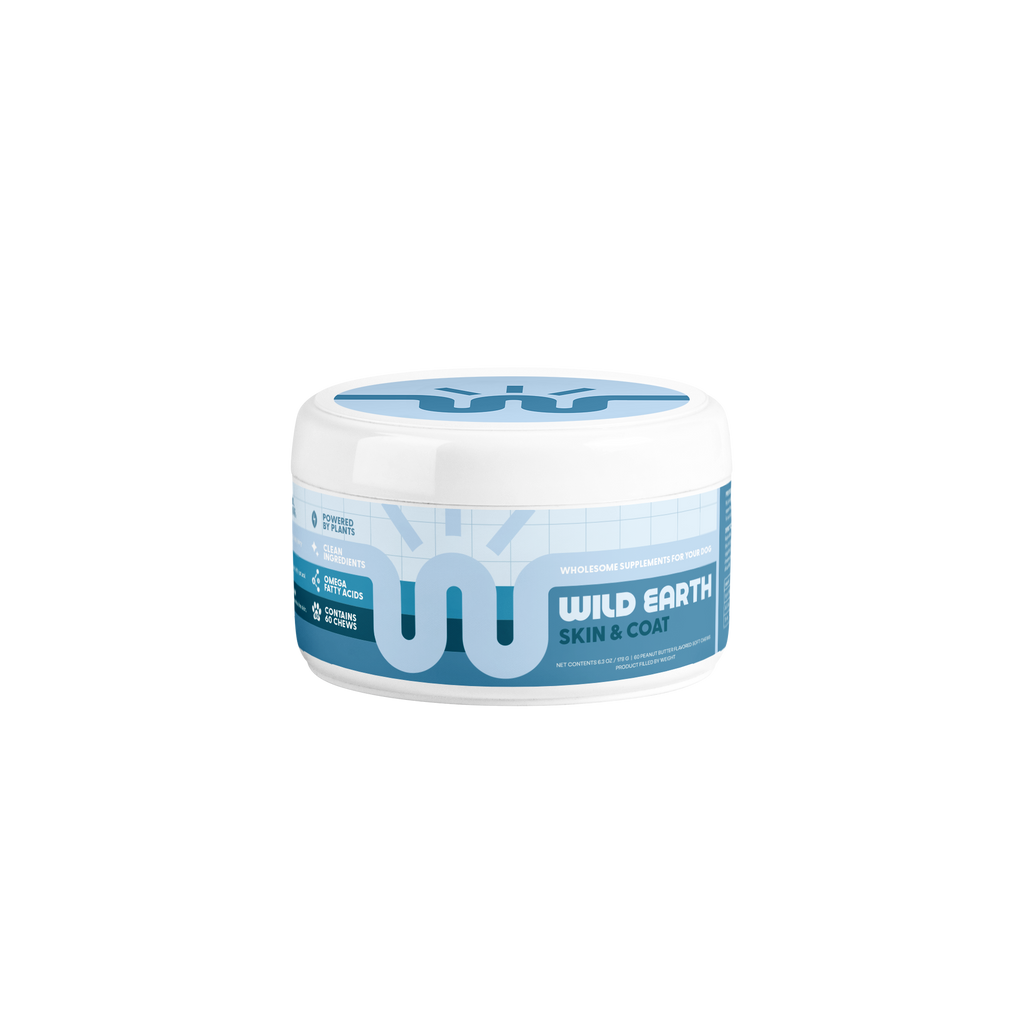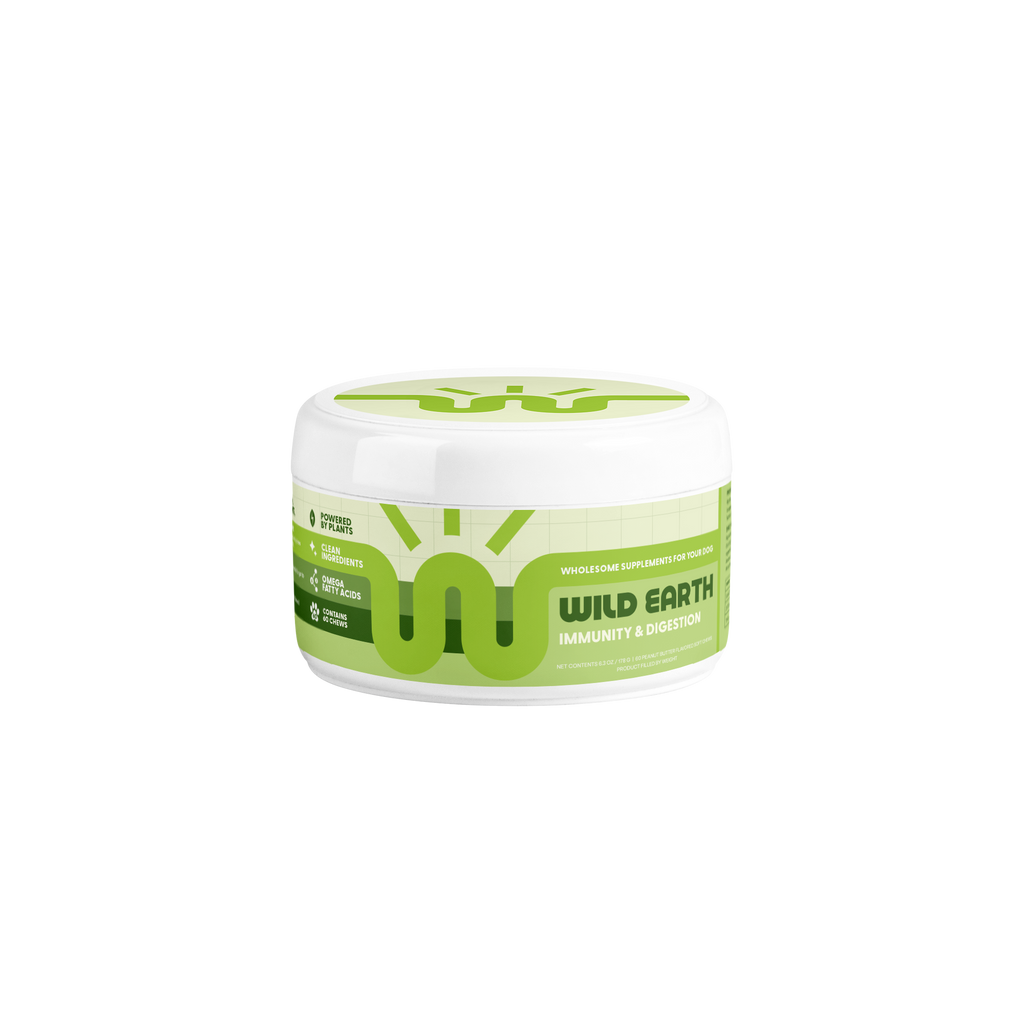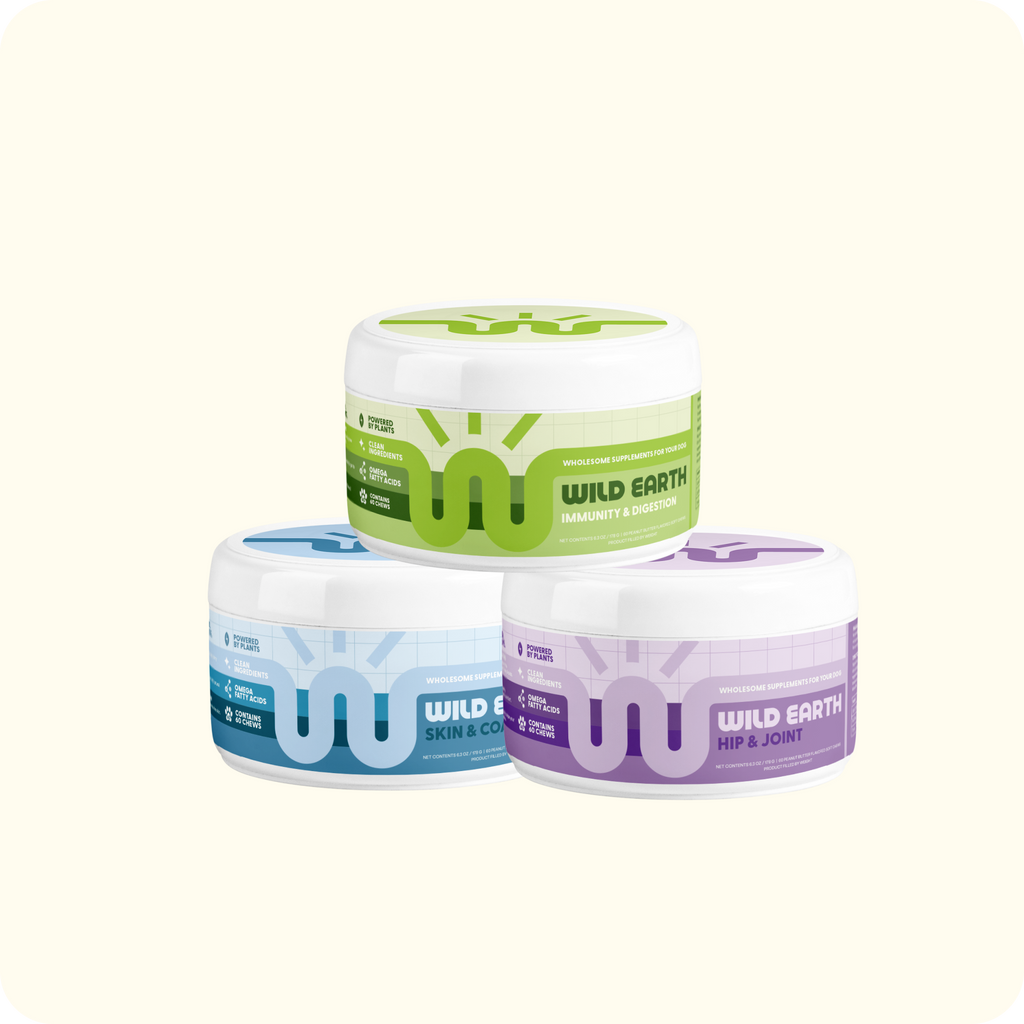
Pancreatitis: What Foods Should my Dog Eat
The pancreas is a vital organ that sits to the right of the stomach and plays a crucial role in digestion and the regulation of blood sugar levels. When it becomes inflamed, the result is pancreatitis.
This condition can be debilitating and even life-threatening for dogs, making it essential for pet owners to understand the condition and how to manage it, especially when it comes to diet.
In this blog, we'll explore what pancreatitis in dogs is, its causes, symptoms, and the type of diet recommended for dogs with this condition.
What is Pancreatitis?
Pancreatitis is the inflammation of the pancreas. It is relatively common in dogs, and has no breed, sex or age predisposition. Typically the pancreas produces digestive enzymes that are inactive and do not become activated until they reach the small intestine. With pancreatitis, these enzymes are prematurely activated and begin to digest the pancreas itself.
Pancreatitis can occur suddenly (acute) or be a more chronic condition.
Acute pancreatitis ranges from mild swelling of the pancreas to a more severe form in which there is bleeding from within or around the pancreas. With this inflammation comes secondary damage to the liver, gallbladder and intestines as digestive enzymes from the pancreas leak into the abdominal cavity.
Chronic or relapsing pancreatitis occurs when a dog who recovers from acute pancreatitis continues to have recurrent bouts of disease.
What Causes Pancreatitis?
While the exact causes of pancreatitis are unknown, and many cases occur spontaneously, there are several known triggers which can trigger pancreatitis, including:
- Dietary Factors: High-fat diets are a known risk factor for pancreatitis in dogs. Feeding your dog table scraps, particularly fatty foods like bacon or fried items, can increase the likelihood of them developing pancreatitis.
- Medications: Medications such as corticosteroids can contribute to the development of pancreatitis.
- Obesity: Overweight dogs are at a higher risk of developing pancreatitis.
What are the Symptoms of Pancreatitis?
The clinical signs of pancreatitis are often variable, and the intensity of the disease will depend on the amount of enzymes that are prematurely activated.
Recognizing the signs of pancreatitis in your dog is crucial for early diagnosis and treatment. Common symptoms include:
- Nausea (often indicated by drooling)
- Vomiting
- Fever
- Lethargy
- Abdominal pain
- Diarrhea
- Decreased appetite
- Hunched back or "praying" position (rear end up in the air and their front legs and head lowered onto the floor)
In severe cases of pancreatitis, yellowing of the eyes and gums, acute shock, severe depression, and even death may occur.
How is Pancreatitis Treated?
The treatment of pancreatitis depends on the severity of the disease, timing of diagnosis, and treatment. Successful treatment relies on early diagnosis and prompt treatment.
In cases of mild pancreatitis, the treatment is supportive care. These dogs are usually given anti-nausea medication, pain medication, intravenous fluids, anti-inflammatories, and antibiotics if an infection is suspected. Dogs who are vomiting should be fasted until vomiting subsides up to a few days, and for those who are not vomiting, they require dietary management which we will discuss further below. Additionally, most dogs are hospitalized for 2-3 days.
In cases of severe pancreatitis, intensive care with aggressive doses of intravenous fluids and medications are necessary to counteract shock.
Dietary Management of Dogs with Pancreatitis
As mentioned, diet plays a significant role in managing pancreatitis in dogs. The primary goal of the recommended diet is to reduce the workload on the pancreas and minimize inflammation. Here's what you should consider:
1. Low-Fat
The cornerstone of managing pancreatitis in dogs is feeding a low-fat diet. This helps to reduce stimulation of the pancreas, which can prevent further inflammation. Prescription dog foods labeled "low fat" and/or "digestive care" are the best options, and typically contain less than 8% fat. These will most likely be recommended by your dog’s veterinarian especially if your dog has a more severe case of pancreatitis. For dogs with mild pancreatitis, prescription low fat diets may still be the best option, however, they may be cost-prohibitive for some individuals. The good news is that some over-the-counter diets may be okay for dogs with very mild pancreatitis. These diets should contain no more than 10-15% fat on a dry matter basis. Always consult your veterinarian, especially if your dog has other underlying issues.
2. Highly Digestible
Choosing a diet with carbohydrates that are easy to digest, such as rice or sweet potatoes, can be included in the diet as they provide a source of energy without straining the pancreas.
3. Frequent, Small Meals
Feed your dog smaller meals more frequently to reduce the workload on the pancreas and minimize the chances of overeating.
4. Avoid Trigger Foods
Stay away from fatty, greasy foods.
5. Hydration
Ensure your dog has access to clean, fresh water at all times. Dehydration can exacerbate pancreatitis symptoms.
Is Wild Earth Suitable for Dogs with Pancreatitis?
Now that we know that the fat content of the diet is key, let’s consider the fat content of Wild Earth’s Performance and Maintenance Formulas.
- Wild Earth Performance has a fat content of 13.8% on a dry matter basis.
- Wild Earth Maintenance Golden Rotisserie has a fat content of 11% on a dry matter basis.
- Wild Earth Maintenance Classic Roast has a fat content of 9.9% on a dry matter basis.
Furthermore, our diets are packed with highly digestible ingredients, and our in vitro digestibility studies demonstrated that our diets are highly digestible.
As you can see, our diets would be suitable for a dog with very MILD pancreatitis provided that their veterinarian agrees.
Pancreatitis in dogs is a painful and potentially life-threatening condition that requires diligent care and attention. Diet management is a crucial component of managing this condition. If you suspect your dog may have pancreatitis or they have been diagnosed, it's vital to consult your veterinarian for guidance on the best dietary approach. A well-balanced, low-fat diet can go a long way in helping your furry friend lead a comfortable and healthy life despite pancreatitis. Always remember to consult a veterinary professional for personalized advice and treatment.




































